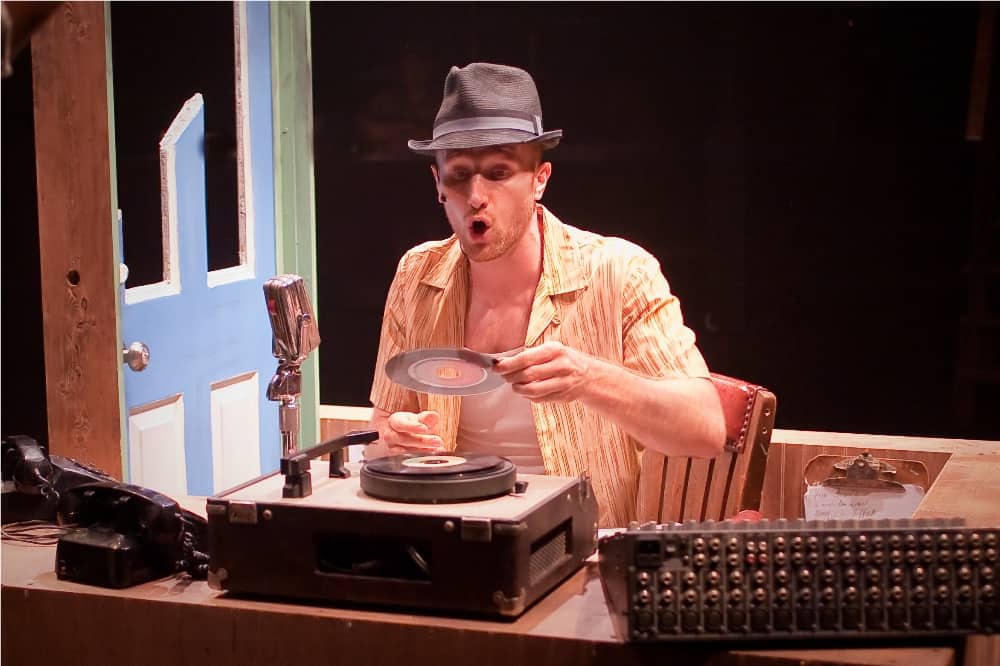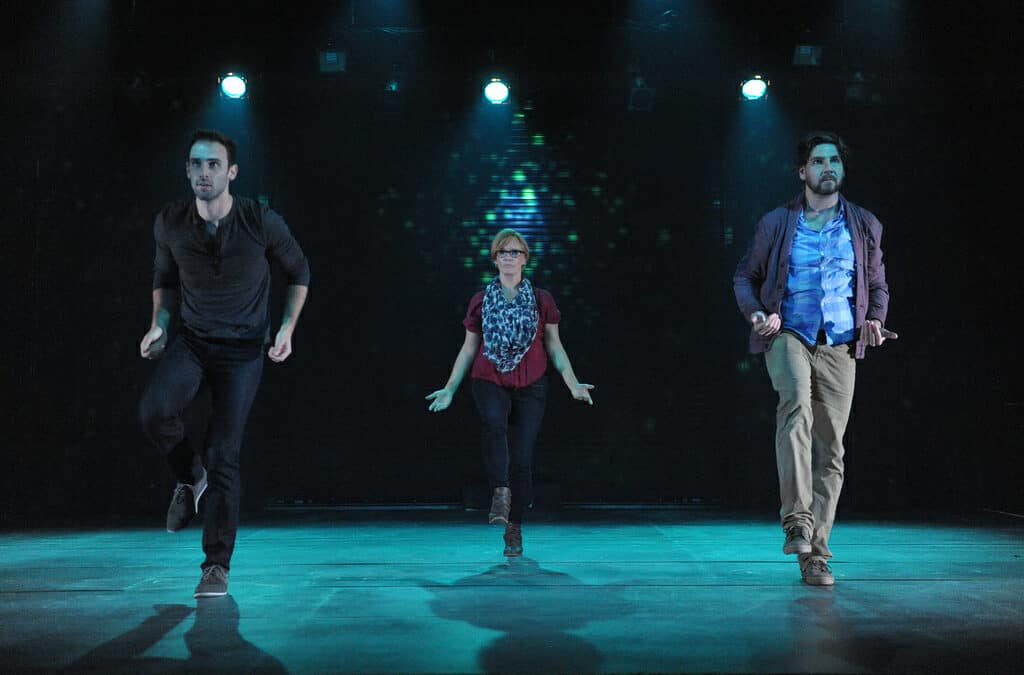
by Jack Gohn | Oct 11, 2014 | The Close Up, Theater Reviews and Commentary
The answer to critic Michael Billington’s question how you award aesthetic points to a 75-minute suicide note is, you award aesthetic points to a suicide note the same way you award aesthetic points to anything else: Is it well-written, does it show you something new, does it move you? The answers to these follow-up questions, with this piece (which is admittedly impossible not to view as a suicide note) are yes, yes, and yes.

by Jack Gohn | Oct 4, 2014 | The Close Up, Theater Reviews and Commentary
It’s hard for me to stop saying wow. Wow to the theater, a three-tier structure that echoes the layout of Shakespeare’s own Globe (albeit with the modern convenience of a roof – and some others including two bars and ergonomic seating that assures there is no standing for today’s groundlings). Wow to the play, one of Shakespeare’s funniest. Wow to the acting, the direction, the staging, the lighting. The audience is assured of over two hours of being in stitches.

by Jack Gohn | Oct 4, 2014 | The Close Up, Theater Reviews and Commentary
The story of why and how Salieri did Mozart in (this is not necessarily historical) is encumbered – there is no other word for it – by Salieri’s narration. Nor is this a “just the facts, ma’am” narration; this is the tortured but ploddingly literal tale of Salieri’s failed relationship with God himself, of God’s betrayal of a bargain Salieri feels God made with him, by giving Mozart a divine talent that should have been Salieri’s. It is also a sort of greatest-hits retrospective of Mozart’s compositions, especially his operas. That’s an awful lot of freight for a single play to carry.

by Jack Gohn | Sep 18, 2014 | The Close Up, Theater Reviews and Commentary
That all does not end well is a given with personalities like these; that Huey is on the side of history we also know. Working to the uneasy compromise between these two dynamics is all we really ask of the plot, and we get it.

by Jack Gohn | Sep 18, 2014 | The Close Up, Theater Reviews and Commentary
Both the play and the play-within-the-play preach the same sermon: You may be trying to do something that attains meaning by being witnessed and judged, but in truth no one will ever see you or judge you. As an understudy, you are condemned to eliciting what meaning you can from what one frustrated character in A Chorus Line summed up as “dancing for my own enjoyment.”






 I lived in London and Vienna before coming to the United States, and grew up mainly in Ann Arbor. I was writing plays and stories as early as grade school. My undergraduate years at the University of Pennsylvania, where I first reviewed theater, for the college paper, were succeeded by graduate study at the Johns Hopkins University, where I earned a doctorate in English Literature.
I lived in London and Vienna before coming to the United States, and grew up mainly in Ann Arbor. I was writing plays and stories as early as grade school. My undergraduate years at the University of Pennsylvania, where I first reviewed theater, for the college paper, were succeeded by graduate study at the Johns Hopkins University, where I earned a doctorate in English Literature.